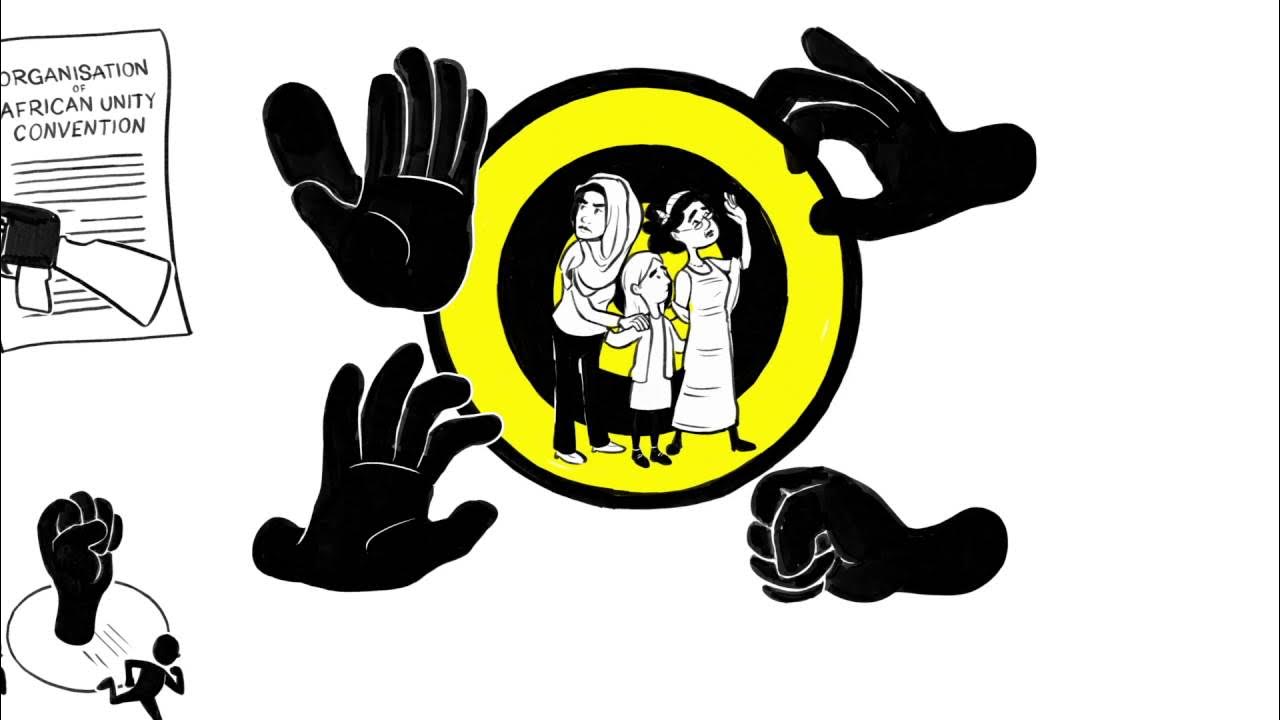Pengungsi dan Konvensi 1951
Summary
TLDRThe transcript discusses Indonesia's approach to international refugees, particularly focusing on the Rohingya crisis and the nation's stance regarding the 1951 Refugee Convention. It highlights Indonesia's long history of handling refugees and the complexities of not ratifying international agreements. Dr. Agusman, a guest speaker from the Ministry of Foreign Affairs, explains the criteria for ratification, emphasizing national interest and security concerns. Despite not being a party to the convention, Indonesia actively collaborates with UNHCR and adheres to international principles, demonstrating a commitment to humanitarian values while navigating the challenges posed by refugee influxes.
Takeaways
- 😀 Indonesia faces ongoing challenges with international refugees, particularly with recent waves from Rohingya individuals arriving in Aceh.
- 😀 The current situation involves thousands of transit refugees in Indonesia awaiting resettlement to other countries.
- 😀 Indonesia has not ratified the 1951 Refugee Convention or the 1967 Protocol, meaning it is not legally bound by their terms.
- 😀 To be classified as refugees under the 1951 Convention, individuals must demonstrate a well-founded fear of persecution based on specific grounds.
- 😀 Key considerations for Indonesia in ratifying the convention include national security, political stability, legal compatibility, and technical feasibility.
- 😀 Ratification would impose obligations such as providing work and housing for refugees, which could strain Indonesia's resources.
- 😀 Indonesia has still shown cooperation by accepting a significant number of refugees, demonstrating a commitment to humanitarian principles.
- 😀 The country adheres to international legal principles like non-refoulement, which prohibits returning refugees to countries where they face threats.
- 😀 The management of refugees in Indonesia is guided by national regulations, specifically Presidential Regulation No. 125 of 2016.
- 😀 Despite not being a party to the convention, Indonesia actively engages in international efforts, such as the Bali Process, to address irregular migration and refugee crises.
Q & A
What are the main issues related to refugees discussed in the video?
-The video discusses Indonesia's historical and current challenges with refugees, particularly focusing on the Rohingya crisis, and Indonesia's stance on the 1951 Refugee Convention.
Why is Indonesia hesitant to ratify the 1951 Refugee Convention?
-Indonesia has not ratified the 1951 Refugee Convention due to concerns about national interests, security implications, and potential conflicts with national laws.
What are the criteria Indonesia uses to assess the ratification of international agreements?
-Indonesia evaluates ratification based on four criteria: political safety, security, legal compatibility, and technical feasibility.
What obligations would Indonesia face if it ratified the 1951 Convention?
-Ratification would impose obligations such as providing employment and accommodation for refugees, which could create significant challenges for Indonesia.
How does the UNHCR play a role in managing refugees in Indonesia?
-The UNHCR is responsible for determining refugee status and providing support, despite Indonesia not being a party to the 1951 Convention.
What international principles does Indonesia adhere to regarding refugees?
-Indonesia adheres to the principles of non-refoulement and non-discrimination, ensuring refugees are not forcibly returned to countries where they face threats.
What actions has Indonesia taken to support refugees despite not ratifying the Convention?
-Indonesia has hosted numerous refugees, engaged in international cooperation with the UNHCR, and implemented national regulations to manage refugee situations.
What are the specific commitments Indonesia made during the Global Refugee Forum in 2019?
-Indonesia committed to providing access to education for refugee children, enhancing the role of the Task Force for handling refugees, and improving international cooperation.
How does Indonesia's geographical location influence its refugee situation?
-Indonesia's geographic position as a transit country means it receives a significant number of refugees seeking to reach other destinations.
What are some consequences of Indonesia's decision not to ratify the Convention?
-Not ratifying the Convention allows Indonesia to avoid certain legal obligations, but it also limits its formal support mechanisms for refugees and may affect its international standing.
Outlines

This section is available to paid users only. Please upgrade to access this part.
Upgrade NowMindmap

This section is available to paid users only. Please upgrade to access this part.
Upgrade NowKeywords

This section is available to paid users only. Please upgrade to access this part.
Upgrade NowHighlights

This section is available to paid users only. Please upgrade to access this part.
Upgrade NowTranscripts

This section is available to paid users only. Please upgrade to access this part.
Upgrade NowBrowse More Related Video

Ratusan Pengungsi Rohingnya Mendarat di Deli Serdang, Pemerintah Bisa Apa?

Hundreds of Rohingya refugees arrive by boat in Indonesia's Aceh province | DW News

Direitos dos Refugiados e Migrantes: o que são e como surgiram? | Projeto Equidade

What does it mean to be a refugee? - Benedetta Berti and Evelien Borgman

A Hallmark of Civilization

Kepala Imigrasi Ungkap Warga Aceh Tolak Pengungsi Rohingya: Perilakunya Meresahkan
5.0 / 5 (0 votes)